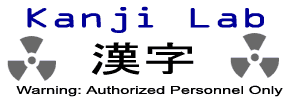
Departments

A KANJI FOR THE PRESENT
今
The kun reading of the above kanji, which means “now; present” is also the Japanese word for now:
- 今(いま) now
- 今頃 (いまごろ)at about this time
The most common on reading, KON, is the first element of words that refer to this month, this week, etc.
- 今月 (こんげつ) this month
- 今晩 (こんばん) tonight; this evening
- 今週 (こんしゅう) this week
- 今年度 (こんねんど) this business year; this accounting year
- 今回 (こんかい) this time; this occasion
Nonetheless, three high-frequency words that contain the on reading of 今 have irregular pronunciations:
- 今日(きょう) today
- 今朝(けさ) this morning
- 今年(ことし) this year
It is worth noting that the first two of the above group can also be pronounced with the standard on reading, コン.Konnichi is most often used in the set expression konnichi wa (“good afternoon”) When konnichi means “today,” it most often means today as in “the present times”:
- 今日の有り様 (こんにち の ありさま)the present condition
- 今日の中国 (こんにち の ちゅうごく)China today
The こんちょう reading of 今朝 sounds formal; it comes across as awkward when used in a conversation.
Finally, there is a second on reading of 今: KIN. You won’t have to worry about this reading on a daily basis. It is mostly used in compounds like kinko / 今古 (now and anciently).